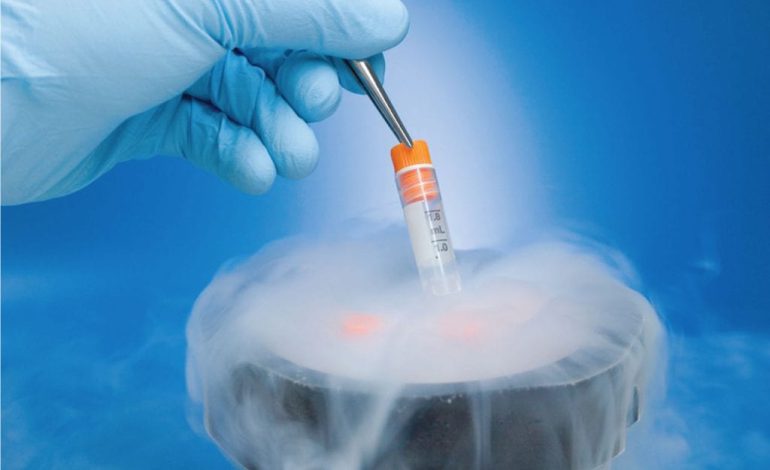What you need to know about egg freezing

When you are still young and ambitious, you may not be ready to have a child given your own reasons, but this comes with reduced fertility and so science created egg freezing. Before you decide to freeze your eggs, it is important to know what you are getting into. Here is just a few things you need to know.
The most common reasons for egg freezing are;
Career or educational goalsLifestyle or travel plansNot having found the right partner (this is the number one reason, according to research)Image: Swiss Mom
For freezing to be considered successful, an egg must;
Develop into a healthy embryo in the labLead to a live birth months laterResult in a clinical pregnancy (that is, a pregnancy confirmed with a heartbeat found via ultrasound)Survive the freezing processSurvive the thawing processSuccessfully fertilize in the labSuccessfully transfer to the uterus
When is the right age to freeze your eggs?
The older you are, the less likely the eggs retrieved will be of high enough quality to lead to a successful birth. It may also be difficult to retrieve enough eggs (or any at all) to freeze. Many egg-freezing centers have age cutoffs somewhere between ages 40 and 45. That said, a part of egg freezing is ovarian reserve testing. This is done before the decision to freeze.
SEE ALSO: Michelle Obama reveals fertility challenges and how IVF helped her conceive daughters
What to expect?
A number of fertility tests, blood work, and ultrasound to evaluate your ovarian reserves and other fertility factors. The ultrasounds are not painful but can be uncomfortable.Consultation appointments, possibly a few, with the doctor, before making the decision. During this period, you’ll have between five and seven monitoring appointments, which will include blood work and transvaginal ultrasounds (to watch the follicle growth in your ovaries).Injections for two to three weeks, usually between one and three injections every day, which you’ll give yourself into the fatty tissue of your stomachSTD/STI testing: You can’t freeze your eggs if you have an active sexually transmitted infection, but after the STD is treated, you could proceed.The egg retrieval, which involves being put under sedation. Your doctor will use an ultrasound-guided needle, which will go through your vaginal wall up to your ovaries, where the eggs will be taken.Image: NBC
What is the cost?
The costs can be broken down into five parts:
Fertility drugs (injections) taken during the egg freezing cycleFertility testing and initial consultation (some of the testing may be covered by insurance)Thaw, fertilization, and embryo transfer (at a future date, when/if you decide to use your frozen eggs)Ultrasounds and blood work monitoring, egg retrieval, and actual preservation of the eggsYearly storage fees
READ ALSO: Ovulation Signs That Help You Know Your Most Fertile Time To Get Pregnant
Is Egg freezing safe?
There are some known and unknown risks to egg freezing. For instance, egg freezing does not seem to increase the risk of congenital birth diseases. However, it is not yet known whether child development or later adult health is impacted by preservation of eggs.
In the short term, people who decide to freeze their eggs may experience side effects of the fertility drugs. Depending on which fertility drugs are used, side effects may include hot flashes, headaches, mood swings, bloating, nausea, weight gain, breast tenderness, spotting, and injection site
The long-term risks of using fertility drugs in fertile people are not well known. There have been concerns that it may increase the risk for some cancers but research is yet to confirm these fears.
Bottom-line
Elective egg freezing gives people who need to delay childbearing another option. While the technology doesn’t eliminate the realities of time, nor guarantee a baby in the future, it does improve the odds of conception when compared to taking no action for those looking to have a child in their late 30s or 40s.
Featured Image: American Surrogacy Blog




